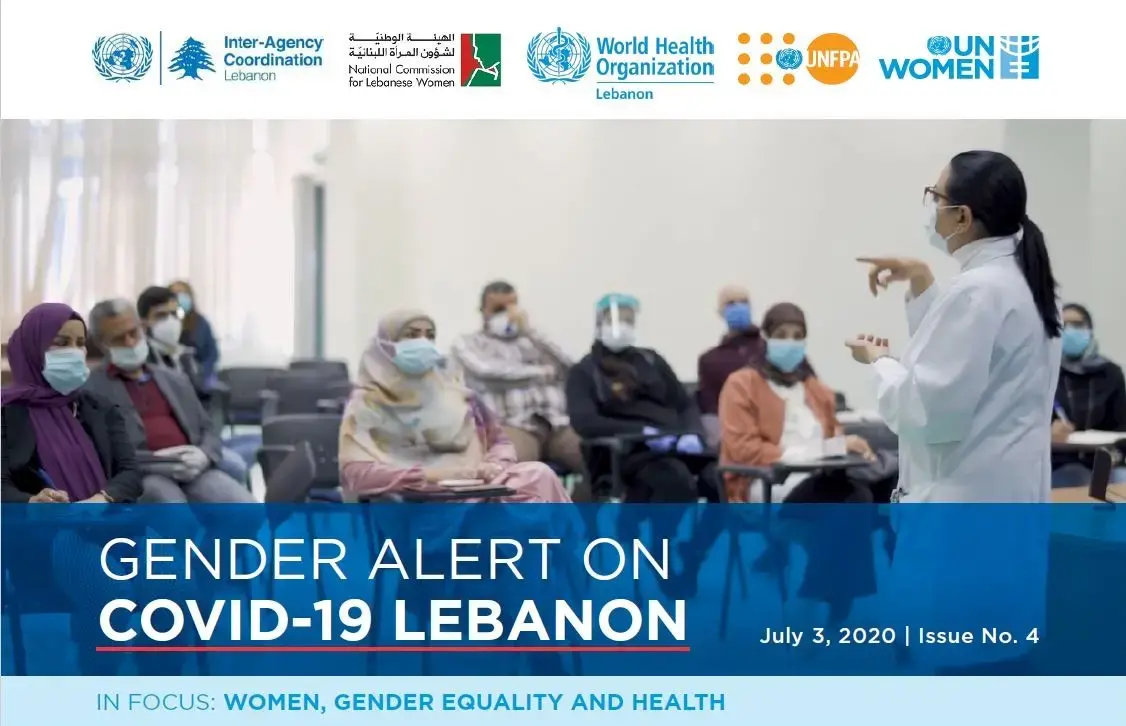Five months after the first COVID-19 case was detected in Lebanon, the pandemic remains largely contained at a level-3
response, with the country still experiencing only geographical clusters, 95% of which have been closed to date. The pressure
of the pandemic and the crippling economic crisis has exacerbated Lebanon’s fragile healthcare system, reducing the country’s
capacity to provide essential medical supplies, fairly remunerate medical professionals, and provide subsidized and affordable
healthcare for vulnerable populations. Global evidence continues to suggest that the impact of the virus is gendered in multiple
ways, including when it comes to health. While the public health crisis has been at the forefront of public, policy, and political
discourse, less attention has been paid to the unique ways in which COVID-19 affects women and men’s health, as well as the
role women and men play in Lebanon’s healthcare system.


